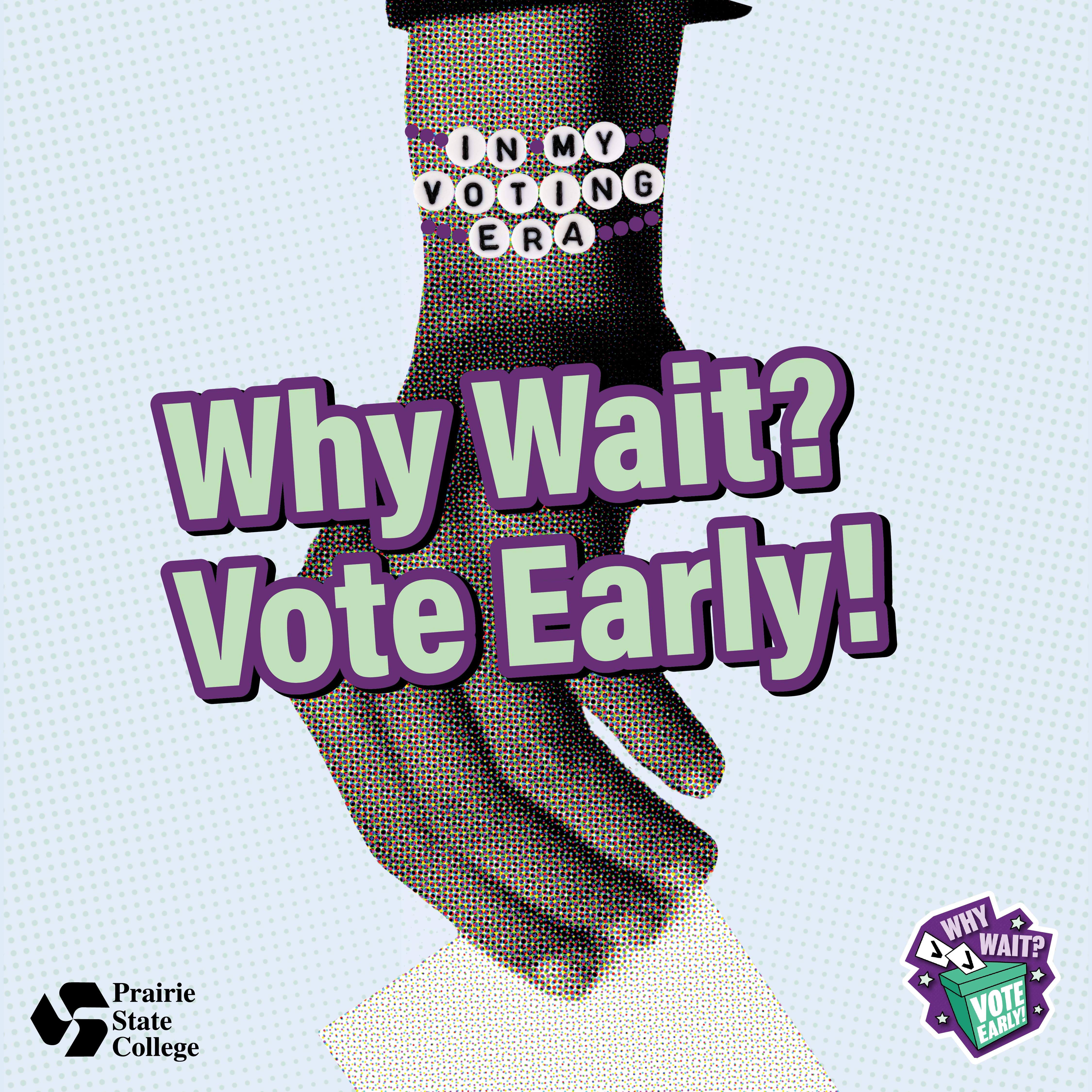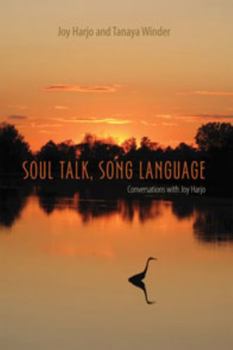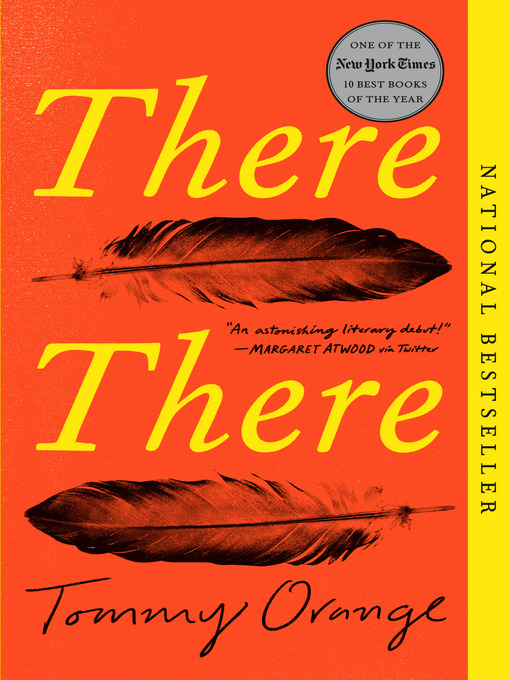The PSC Library is open M-W 8am-7:00pm and Th-F 8am-4:30pm. PSC Librarians are available through the "Chat Now" button or via email at librarians@prairiestate.edu.


2024 General Election
The 2024 General Election is Tuesday, November 5, 2024. The PSC Library along with the rest of campus will be closed to give you time to vote. The library has a research guide for the election. It has information on creating a voting plan, what’s on your ballot, and fact-checking. If you already voted, celebrate with these voting stickers from around the US.
PSC also has early voting in the conference center. Suburban Cook County voters can vote early at the PSC Conference Center through November 4, 2024. Dates and times are listed on the PSC website.

Lunch 'n Learn: National Native American Heritage
Bring your lunch to the back of the library for our Lunch 'n Learn: National Native American Heritage on Monday, November 18th. The U.S. Department of the Interior Indian Affairs says that National Native American Heritage Month “ is a time to celebrate the traditions, languages and stories of Native American, Alaska Native, Native Hawaiian, and affiliated Island communities and ensure their rich histories and contributions continue to thrive with each passing generation.” Our program will start with a discussion about land acknowledgments in the Scholar’s Garden at 12:00 PM, followed by a chance to share written works of Native authors in the back of the library starting at 12:30 PM. This event is free and open to all. Classes are encouraged.
While the library does not purchase textbooks, we maintain a reserve collection donated by faculty for their classes. Reserve textbooks are available for checkout in two-hour increments and used inside the library. Faculty and staff can put items on reserve with our Library Reserve Form. Items on reserve can also include lab manuals and DVDs.
When preparing for the spring 2025 semester, put your textbooks on reserve for your students. Check if your reserves are up to date with this Google Sheet and discuss with your students how to access reserves for the class. Please feel welcome to share the sheet with your students so they can see if textbooks for other courses are available.
Please welcome the library’s newest reference librarian Sarah. She currently works in a public library, and this is her first academic role. Sarah will work at the reference desk late afternoons and evenings. When not at work, she enjoys reading, especially historical fiction, and just finished Julian Fellowes’ book Belgravia. She loves a good walk, and her cats Taz, Leo, Liam, and Lexi. Stop by to introduce yourself next time you are in the library.
by Valerie Moore, Outreach and Engagement Librarian and Associate Professor
When Hurricanes Helene and Milton destroyed parts of the Southeast, I wanted to do something. At about the same time I worked with Associate Professor of Communications Speech Brianna Abaté to help her students evaluate charities for their speech assignments. If you are unfamiliar, Professor Abaté has her students select a charity for the semester as their speech topic. The assignment is hyperlinked to this sentence if you are curious to see what it involves. My first career was in fundraising after a master’s in not-for-profit management, so I enjoy sharing my industry-specific knowledge with her students. With that, I would like to discuss how to evaluate charities using lateral research in this month’s water cooler. You too can use these techniques to determine which charities should get your hard-earned money.
In the library’s September newsletter, I discussed using lateral research to help identify election misinformation. To review, lateral research means looking at outside sources to gain more information, rather than just staying within the original source. For example, if you are unfamiliar with an author, news outlet, or in this case, a charity, see what others have said about them. There are many good reasons to explore a charity’s website, but remember that websites are ultimately marketing pieces designed to make an organization look its best.
Start with a simple Google search for your charity. In this scenario, let’s assume you’ve already looked at the charity’s website, so there’s no need to do that again. Instead, see if they have a Wikipedia page. While tiny charities may not have a Wikipedia page, medium and large ones will. Does the Wikipedia page agree or disagree with the charity’s self-reporting? You can see a great demonstration of lateral research using Wikipedia in this video of Mike Caulfield, Director of Blended and Networked Learning at the University of Washington.
Another strategy is to look at Google News for the same search. Many charities will put out press releases that are picked up by news outlets. It is expected that you will see many of the charities' own events, although news outlets are under no obligation to cover these stories from any angle. However, scandals, fraud, or other red flags can show up with this technique.
Finally, I’d like to share some industry-specific databases for researching charities.
Charity NavigatorCharity Navigator is a website that rates charities and is designed with the donor in mind. The homepage features newsworthy disasters like hurricanes and wars, alongside charities serving these causes. You can see where your money will have the most impact by cause, or you can look up individual charities by name. The rating pages provide a big-picture overview, are easy to understand, and don’t have much jargon. They also have a link to donate directly to the charity.
GuideStarGuideStar is used by not-for-profit professionals, but you can use it too. You will need to create a free account, which will give you a limited number of searches per month. Outside of those in the industry, this will be enough searches for most people. GuideStar also has a search bar for individual charities. If you hit search you can also look for charities by location, cause, and rating. The ratings page for charities is much more detailed than Charity Navigator and even includes 990 tax documents over several years. It can be useful to see a charity’s financial statements over time.
Using websites like GuideStar and Charity Navigator is also a form of lateral research. These are outside neutral parties that evaluate charities for their effectiveness. The September newsletter discussed websites (Snopes and Politifact) to evaluate election claims, but these websites all do the same thing. They help you make a judgment on whether a candidate deserves your vote, or a charity your money. Next time you are looking to donate for disaster relief or the holidays, use these tools to make an informed decision.
November is National Native American Heritage Month, and the library will have a display featuring books by Native American authors and about Native American history. You can see the full display in the library or a preview of the ebooks below.
 Keetsahnak: Our Missing and Murdered Indigenous SistersKim Anderson, Maria Campbell, Christi Belcourt |
Centering Anishinaabeg StudiesJill Doerfler, Niigaanwewidam James Sinclair, Heidi Kiiwetinepinesiik Stark |
 LaRose: A NovelLouise Erdrich |
 The Night WatchmanLouise Erdrich |
 Soul Talk, Song Language: Conversations with Joy HarjoJoy Harjo and Tanaya Winder |
 The Tao of Raven: An Alaska Native MemoirErnestine Hayes |
 All Our Relations: Native Struggles for Land and LifeWinona Laduke |
The Sky Watched: Poems of Ojibwe LivesLinda LeGarde Grover |
 There ThereTommy Orange |
Shapes of Native NonfictionElissa Washuta and Theresa Warburton |
 Jonny Appleseed: a NovelJoshua Whitehead |
Love After the EndJoshua Whitehead |
Lastly, the library is here for you; reach out with any questions at Ask a Librarian!